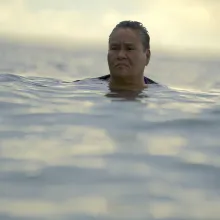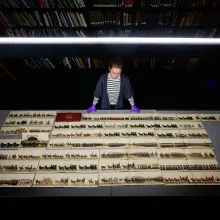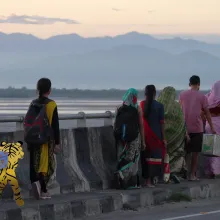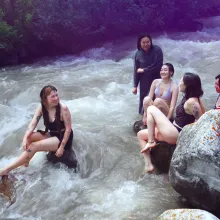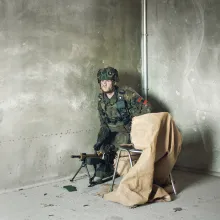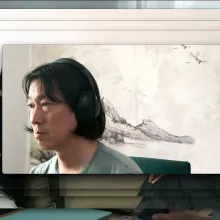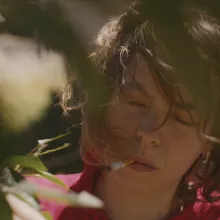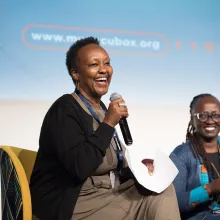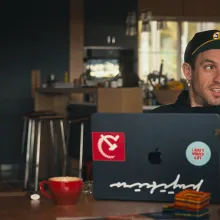Kimberlee Bassford looks back on the unexpected developments that continue to shift the structure of her Sia Figiel doc Before the Moon Falls
Interview
In this interview, Getty Images execs discuss media trust, licensing fee structures, and generative AI tools at the storied archive
Madhusree Dutta discusses Flying Tigers, her decades-spanning Berlinale doc about memories and histories reclaimed
In this interview, Kristina Mikhailova discusses violence, anger, and female agency in her Berlinale title River Dreams
German director Marie Wilke discusses her observational principles at Europe’s largest military training ground, where war is meticulously rehearsed
In this interview, Kevin B. Lee discusses why he needed to expand the desktop documentary to craft his feature debut, Afterlives
This essay and interview examines how James Benning’s EIGHT BRIDGES builds on his decades-long approach to extended observation, personal geography
In this interview, Angelica Ruffier talks about mining her past brushes with desire for her IFFR doc La belle année
After stepping down from running DocuBox, founder Judy Kibinge reflects back on her 13-year tenure at the Kenya-based East Africa documentary fund
Sinéad O’Shea talks about the challenges of capturing Fergie Chambers’s many contradictions in All About the Money





